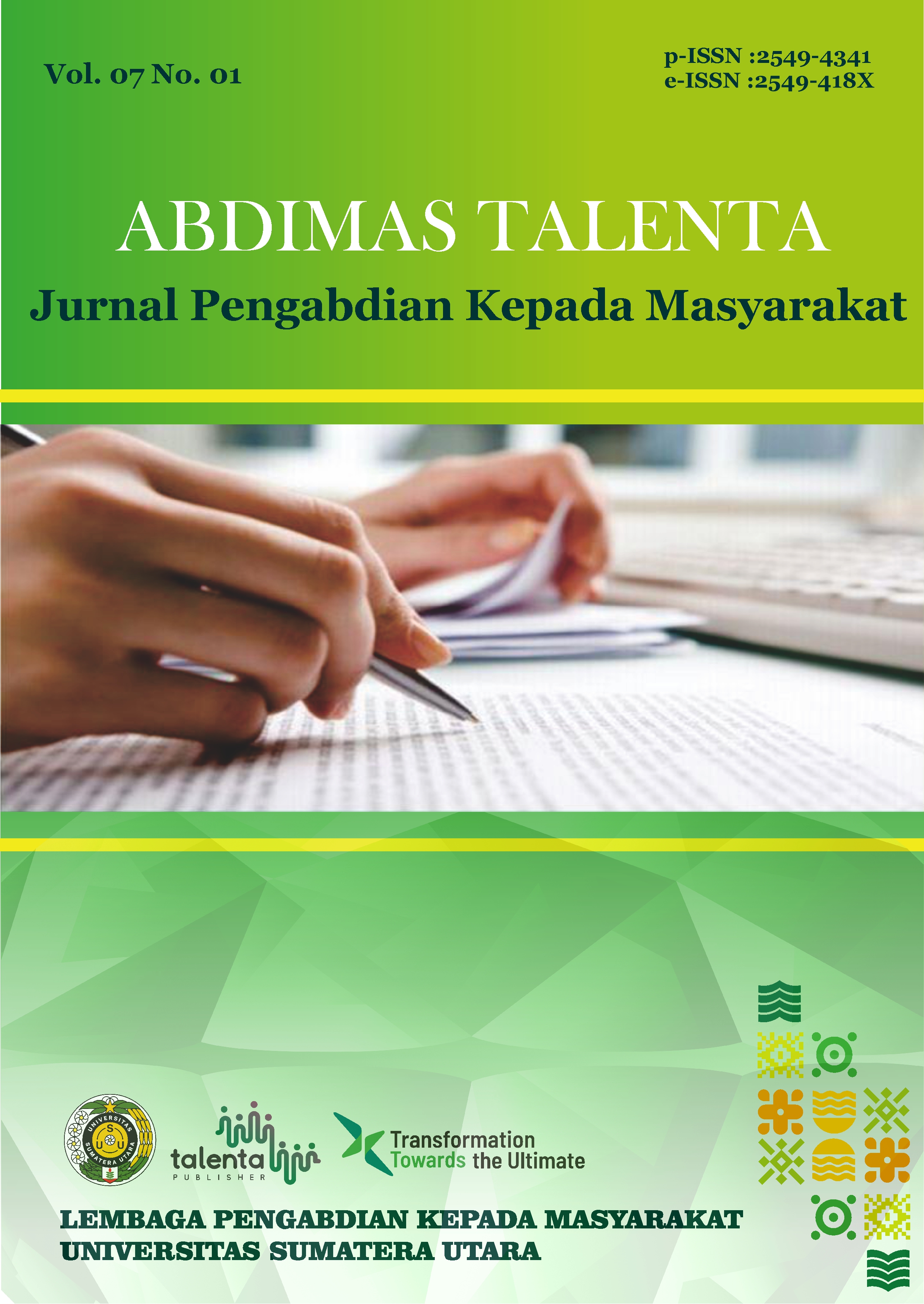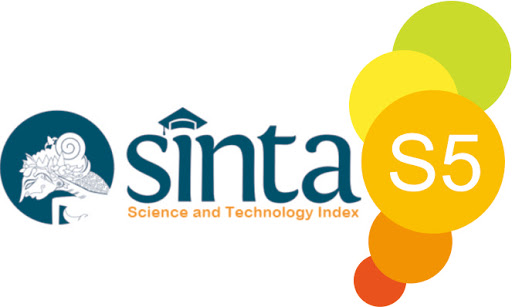Development of Tourism Villages Based on Local Culture to Increase Community Income at Dokan, Karo North Sumatera
DOI:
https://doi.org/10.32734/abdimastalenta.v7i1.7811Keywords:
Development, Tourism, Tourism Village, Local Culture, Community, Community IncomeAbstract
The purpose of the community service of the professors serving scheme in 2021 is to increase the understanding, knowledge and commitment of the community in the Dokan tourist village, Karo, North Sumatra to the importance of developing tourism village based on local culture to increase people's income. This community service of the serving professor is carried out by lecture and question and answer methods, namely socialization by communication, information, and education (KIE) about the need to develop a tourism village based on local culture, namely Karo culture, so that it is attractive to tourists, both local and foreign tourists. The results of community service activities, professors serving scheme in 2021 which were carried out in the tourist village of Dokan, Karo, North Sumatra went well and smoothly without significant obstacles even though in the midst of the Covid-19 pandemic by implementing strict health protocols and the number of participants was limited to 25 people only. Participants were very enthusiastic about asking questions and providing information and statements about how to develop a tourism village based on local culture, namely the Karo traditional house. The community service team of professors serving scheme Universitas Sumatera Utara provides solutions so that mutual cooperation is carried out at least every Saturday to maintain the Karo Traditional house in the tourist village of Dokan, Karo, North Sumatra and proposes a proposal for the maintenance of the Karo traditional house to the local government and central government and related interest groups.
Downloads
Downloads
Published
Issue
Section
License
Copyright (c) 2022 ABDIMAS TALENTA: Jurnal Pengabdian Kepada Masyarakat

This work is licensed under a Creative Commons Attribution-ShareAlike 4.0 International License.
The Authors submitting a manuscript do so on the understanding that if accepted for publication, copyright of the article shall be assigned to Jurnal Abdimas TALENTA as well as TALENTA Publisher Universitas Sumatera Utara as the publisher of the journal.
Copyright encompasses exclusive rights to reproduce and deliver the article in all forms and media. The reproduction of any part of this journal, its storage in databases and its transmission by any form or media, will be allowed only with written permission from Jurnal Abdimas TALENTA.
The Copyright Transfer Form can be downloaded here.
The copyright form should be signed originally and sent to the Editorial Office in the form of original mail or scanned document.












